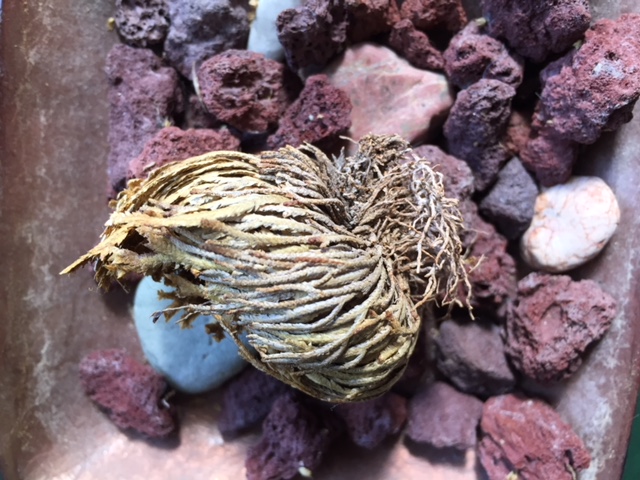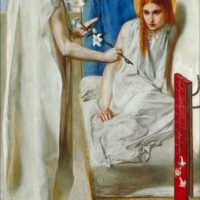Matthew 25:31-46
I’m going through something called the quarter-life crisis. Maybe you’ve heard of it.
The market crashed just as I was getting ready to graduate from college.
I moved 3,000 miles away from the house I grew up in.
I got a tattoo.
My twenties have been a time of constant transition. Of fear. Of confusion. What is my life all about?
Well, that’s a dangerous question. That’s how people end up in seminary.
I remember my dad’s mid-life crisis. He grew up the dutiful, only child of his German-immigrant parents: Catholic school his whole childhood; he took accordion lessons—accordion!—throughout high school, and he took drink orders at his parents’ weekly cocktail parties.
But when he got into his forties—he grew his hair long, like he was never supposed to.
He bought a red vintage sports car, which, with parenthood and a sensible career, had never seemed practical.
I look back now, where I stand in my own life crisis, and I see that he had regret. Regret for what he hadn’t done when he had the chance. Anticipating regret if he didn’t do something now—something big.
I know my mother thinks I will regret this tattoo. But really I was trying to guard myself against future regrets. “I will be sorry I didn’t do it when I had the chance.”
Regret sings a little song in our hearts—and in the back of our throats, in the pits of our stomachs. The words of a professor ring in my ears when I listen to the sheep and the goats.
I wanted to, but I didn’t. I wish I had.
“‘Lord, when did we see you hungry or thirsty or a stranger or naked or sick or in prison, and did not care for you?’”
I wanted to, but I didn’t. I wish I had.
Our whole beings long for that other possibility—that other place, that right hand of God—when we know regret. If only! We know the feeling of being on God’s left side, and it is that “if only” feeling.
It is a crisis of regret.
Mixed with plenty of mourning.
Neither the sheep nor the goats know how long they have to get right in their relationships, how many times they can see the stranger and decide whether, on that day, to welcome her or not. How many times they can pass by someone who is sick or lonely and see if there is time to sit with him.
We do not know exactly how many more times Jesus will look at us out of the face of someone we love who needs us. And on some days, my arms reach out and bring that person to me. And on some days, I am a distracted goat, and I do not see anyone there.
In some of his last words to his disciples, Jesus tells us we will feel regret like that, especially in the relationships with people we love.
Today we remember those people we love who have died. We remember especially Julius Beisel, whom we lost just a few days ago.
Today I remember my Oma, who died when I was just four.
Our hearts are tender, today—they are like putty. And maybe some of us have joyful hearts. Maybe today is a celebration of the lives of those who have touched us.
But maybe our hearts, too, are singing that haunting song.
Regret is unavoidable if a relationship is worth its salt.
I wanted to, but I didn’t. I wish I had.
My Oma spent her final months with us in our home in New Jersey, sick with ovarian cancer. And my parents gave her my room.
I wish I had been okay with that. I wish I hadn’t wanted her to leave.
I wish I had been old enough to ask to see pictures of her when she was young. I wish I had asked for fashion advice. I wish I had asked this mother of that rebellious father of mine, what her Catholic faith meant to her, and what it had been like to leave Germany when she was a teenager.
I wish I could have asked her advice about this tattoo, though of course I know what she would have said.
Mein Gott! Nein, Erika. Nein.
I regret.
I’m sorry.
We did not feed our loved ones as much as we wanted to.
We do not feed Jesus every time we have the opportunity.
We often choose—intentionally or unintentionally—to stay where we are standing when we have just been invited to walk over to God’s right hand.
We fall short. And so we grieve. We grieve that we can no longer hold the ones we love when they have died, but more so, we grieve that we held onto some of the wrong things when they were still with us.
We are sheep on our best days.
And goats on most days.
I wanted to, but I didn’t. I wish I had.
And yet, we are invited by Christ to the kingdom which has been prepared from the foundation of the world. Me, precious me: a place has been readied for me. You, beloved you: you are longed for and waited for in that Kingdom.
In some of his last words to his disciples, Jesus us tells us we will find ourselves in a crisis of regret. But they are not his very last words to his disciples.
Regret is not the last word. We know what is—the cross.
Jesus dies the death of “the least of these on the cross,” revealing the depth of God’s passion for us. It is a love without regret. A love God dies for.
We have left many things undone, but at the end of the day, we are still the sheep our king has died for.
We do not feed as many as we could; we do not write or visit the ones we know are lonely; we do not say “I love you” to as many people in our lives as could use hearing it.
But what we have left undone, Christ has done. On that cross. In the new reality God has promised us, a reality in which a place has been prepared for everyone. A place which we trust is where our most beloved ones are now. Death is not God’s last word on the subject of God’s creation. Life is.
And so tomorrow will bring a new day, a day of regrets and tears, to be sure, but a day in which Jesus will greet us in the arms of one another, and we will choose—or not—to extend our arms; and we will choose—or not—to allow ourselves to be held.
Allow yourself to be held. By one another. By the one who was crucified on a cross and did not stay dead. The one who tells us he feels our regrets, our longing and our grief.
I cannot ask my Oma how it felt to leave her homeland. But today, or tomorrow or next week, I can ask you. It is not too late.
We do not love each other the way we want to. We get it wrong. But in Christ, we are made right. And we live in the hope of many more days—in this world, and in one that is to come—to love each other the way we have always wanted to.
Amen.







